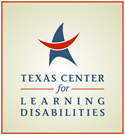Goodwin, A. P., Gilbert, J. K., Cho, S., & Kearns, D. M. (2014). Probing lexical representations: Simultaneous modeling of word and reader contributions to multidimensional lexical representations. Journal of Educational Psychology, 106(2), 448–468.
Summary by Catherine Jockell
Overview
The question of how many and which types of cognitive processes support literacy skills is an important topic for parents, educators, and education researchers. Understanding the knowledge required to correctly read, spell, and comprehend individual words can provide information about what types of skills and information should be taught to and strengthened in students of all ages and skill levels. Lexical representations—that is, the ability to accurately read and spell a word, as well as knowledge of its meaning—are formed, word by word, as students progress through literacy instruction and can vary in their depth and accuracy.
The overarching goal of this study was to determine what factors affect the quality of lexical representations for students in seventh and eighth grades. The study used root words (heal, nation, arrogant) and derived words (root words with prefixes or suffixes: health, nationalistic, arrogance) to examine the skills required to form complete lexical representations.
The authors measured the following aspects of students’ familiarity with the root words to help predict the strength of lexical representations of derived words: (a) reading accuracy, (b) spelling accuracy, (c) self-reported knowledge of meaning, and (d) morphology. This last skill was measured by asking students to write as many derived words as they could think of for a root word the researchers provided (example: forgetful, forgettable for the root word forget).
Because students differ in their reading level, this study assessed three global student literacy skills that can affect lexical representations: (a) reading comprehension, (b) vocabulary knowledge, and (c) morphological awareness. Morphological awareness is the knowledge of what word parts—root words, prefixes, and suffixes—mean and how they can be manipulated to form different, more complex words.
Finally, individual words also have characteristics that can affect lexical representations. The authors took into account how common the root and derived words were (word frequency) to predict the difficulty of forming a complete lexical representation of the derived word. They also noted whether the spelling (Mars, Martian vs. heal, health), sound (heal, health vs. graph, telegraph), or both (meter vs. biometric) of the root word changed when the derived word was formed.
The outcomes in this study were skills related to derived words, which were measured a lot like the root words—through (a) reading accuracy, (b) spelling accuracy, and (c) self-reported knowledge of meaning. Together, these three skills form a students’ lexical representation of a derived word.
Results
Full representations of the pronunciation, spelling, and meaning of complex words do not arise out of a single cognitive process. Students employ global literacy skills (morphological knowledge, reading comprehension skills, and vocabulary knowledge) as well as root-word-specific literacy skills (root word reading, spelling, and knowledge of word meaning) to form complex representations of words. Students who reported knowing the meaning of the root word and were able to list morphologically related words (forget, forgetful, forgettable) were more likely to read, spell, and report being able to define derived words than students who lacked knowledge of the root word. Root-word-related morphological awareness plays an important role in forming lexical representations of derived words. In addition, students who scored higher in global morphological knowledge, reading comprehension, and vocabulary were, overall, better able to read, spell, and define derived words.
Implications
For educators, this study implies that instruction in global literacy skills is important but inadequate on its own for building lexical representations. Educators can support adolescent students’ learning of morphologically complex words by providing explicit instruction in the meaning, spelling, and pronunciation of root words, as well as instruction in general morphological awareness. Students who can parse a derived word into its root and affixes are more likely to have a rich lexical representation of that word.
The frequency with which students encounter root and derived words also contributes to the depth of their understanding of these words. The more exposure students have to words in print, the more detailed and stable their lexical representations of these words become. This finding is not a surprise to educators, but it serves to underscore the importance of constant literacy input when building literacy skills.
In addition, the stability of the spelling and pronunciation of the root word when forming the derived word contribute to how difficult the derived word is to read, spell, and comprehend for seventh- and eighth-grade students. Greater focus on roots that change their spelling or sound may be required for students to master the skills required to form a complete lexical representation (sound, spelling, and meaning) of certain derived words.
When estimating students’ abilities to create complete, detailed representations of complex words, students’ morphological knowledge, reading comprehension skills, vocabulary knowledge, root word reading, spelling, and knowledge of root word meaning must be considered. When estimating the relative difficulty of a given derived word for students to read, spell, or define, the frequency of the word and its root must be considered, as well as any changes the root undergoes to form the derived word. Characteristics of the student and the task both contribute to performance on literacy outcome measures.
